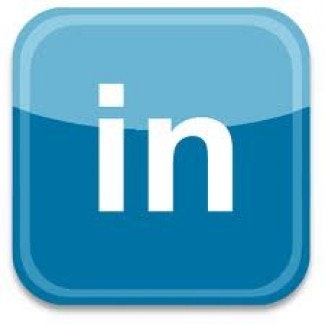
LinkedIn boosts its mobile presence
LinkedIn Corp (NYSE:LNKD), often called the “Facebook for Professionals,” has been laser-focused on creating a fully mobile ecosystem for its users. The company first drastically modified its mobile app in April, adding a personalized activity stream, clearer navigation and streamlined news feed advertisements. LinkedIn Corp (NYSE:LNKD)’s original app only allowed users to search for other people, but an update this month rectified that oversight, allowing users to search for companies, groups and jobs as well.
However, some of LinkedIn’s other features still exist as separate apps. For example, it acquired business card scanning app CardMunch two years ago, but the service remains a standalone app for iOS and Android, rather than a function of the official LinkedIn app. Meanwhile, it merged the Contacts section of its website into a standalone personal assistant app for iOS devices. Keeping these services as separate apps is an odd choice, considering how well they would integrate with LinkedIn Corp (NYSE:LNKD)’s primary app.
Joff Redfern, the head of mobile products at LinkedIn, once stated that it was “hard to get everything that LinkedIn does on to a single application on a small screen.” However, the company needs to beware of needlessly fragmenting its user base of 225 million professionals and 3 million company pages. In addition, 64% of its users are overseas, so LinkedIn would benefit more from releasing and updating a single app on a regular basis, rather than three separate ones that might not be simultaneously updated worldwide.
Over the past year, LinkedIn Corp (NYSE:LNKD) has undergone a rapid transformation from a network used primarily for job queries to a more social-oriented site. Its acquisition of news reader Pulse for $90 million made browsing the site a much more visual experience, and the addition of sponsored stories from influential leaders made the site more interesting for returning users.
So far, LinkedIn’s efforts have paid off. Last quarter, it reported year-on-year earnings and revenue growth of 353% and 72.3%, respectively. Although it still trades at 86 times forward earnings, the stock is still up more than 70% over the past twelve months.
Facebook focuses on the mobile games market
LinkedIn’s growth is a stark contrast to Facebook Inc (NASDAQ:FB)’s more tepid growth. Last quarter, Facebook Inc (NASDAQ:FB)’s earnings rose 6.8% as its revenue grew 37.8% year-on-year, despite its position as the world’s largest social network with 1.1 billion users. Since its disastrous IPO last May, many investors have wondered why Facebook, which only trades at 31 times forward earnings, just isn’t being taken seriously in comparison to LinkedIn.
The problem with Facebook Inc (NASDAQ:FB) is its user base. Whereas LinkedIn is regarded as the social network for professionals, Facebook will always be considered a network for casual users, who are more fickle and less likely to pay for premium features. LinkedIn Corp (NYSE:LNKD) is able to generate revenue from premium users alongside advertising. Facebook, on the other hand, must rely completely on advertising and micro-transactions to grow its top line.
TechCrunch recently reported that Facebook is now attempting to expand into a hot area of mobile growth – mobile games. Over the past year, companies such as Zynga Inc (NASDAQ:ZNGA), King and Electronic Arts have been bringing their Facebook games to mobile devices, where most users now play these games. Facebook doesn’t intend to create mobile games, but rather to act as a publisher for smaller developers. In exchange, Facebook would earn a cut of the in-game advertising revenue and micro-payments for virtual items.
Last quarter, micro-transactions and other fees accounted for $200 million of Facebook Inc (NASDAQ:FB)’s revenue, while mobile ad purchases from game developers generated another $373 million. Although those sales already account for 10.4% of Facebook’s quarterly revenue, it could make substantially more if it manages to replicate the success of Apple Inc. (NASDAQ:AAPL) and Google Inc (NASDAQ:GOOG)’s mobile app stores. Both Apple Inc. (NASDAQ:AAPL) and Google Inc (NASDAQ:GOOG) take a 30% cut on all digital transactions.
In addition, publishing mobile games directly would increase Facebook Inc (NASDAQ:FB)’s defensive moat against Asian mobile chat companies like Line and Kakao, which expanded out of their initial niche by creating timelines and integrated mobile games that synchronize to their phone contact lists, undermining Facebook’s importance on mobile platforms.
Zynga appoints a new leader
Speaking of mobile games, one company that got left in the dust was Zynga Inc (NASDAQ:ZNGA), which once shared a symbiotic relationship with Facebook until those bonds were severed by both parties. Last quarter, Zynga Inc (NASDAQ:ZNGA) reported 20% and 13% year-on-year declines in daily and monthly active users, respectively. Total revenue plunged 18% as earnings fell 81%. The company also laid off 20% of its workforce and closed its New York, Dallas and Los Angeles studios.
Zynga was left behind as interest in its social games waned, and mobile offerings from Electronic Arts, King, Roxio, and ZeptoLab made Zynga Inc (NASDAQ:ZNGA)’s Farmville and Words With Friends look dated by comparison. The company was also constantly criticized for copying other, more successful franchises.
After watching Zynga plunge nearly 40% over the past twelve months, CEO Mark Pincus, who still owns 61% of the company’s voting shares, finally stepped down and handed the reins over to Microsoft Corporation (NASDAQ:MSFT) Xbox division head Don Mattrick. Investors cheered the decision, since Mattrick is often credited for single-handedly making the Xbox business profitable after several years of losses. However, Mattrick’s appointment won’t be the silver bullet that Zynga needs to save the ailing business. Mattrick faces some steep challenges from other hungry mobile gaming companies, and Zynga Inc (NASDAQ:ZNGA)’s former ally Facebook might evolve into its toughest competitor yet.
What a difference a few quarters makes…
Investors who are considering picking up shares of LinkedIn Corp (NYSE:LNKD), Facebook Inc (NASDAQ:FB) or Zynga need to stay on top of the latest headlines, since the long-term outlook of these companies can dramatically shift within the span of a few months.
Of these three companies, LinkedIn appears to be the most compelling long-term investment, thanks to its rapidly growing user base, international exposure, and the disruptive nature of its job search technology. Meanwhile, Facebook is searching for the next source of revenue growth, and becoming a mobile games publisher is a lucrative idea. Lastly, I suggest that investors avoid Zynga Inc (NASDAQ:ZNGA) completely, since this company’s future is filled with too many question marks to be considered a viable investment.
The article A Trio of Game-Changing Developments in the Mobile World originally appeared on Fool.com and is written by Leo Sun.
Leo Sun owns shares of Facebook. The Motley Fool recommends Facebook and LinkedIn. The Motley Fool owns shares of Facebook and LinkedIn. Leo is a member of The Motley Fool Blog Network — entries represent the personal opinion of the blogger and are not formally edited.
Copyright © 1995 – 2013 The Motley Fool, LLC. All rights reserved. The Motley Fool has a disclosure policy.




